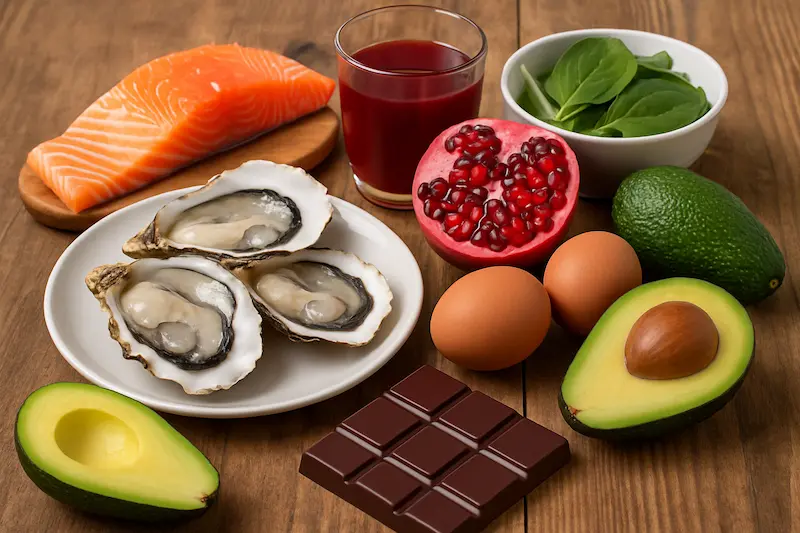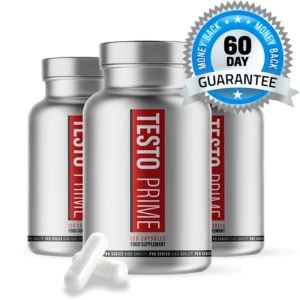Testosterone plays a critical role in men’s overall health—from building muscle and maintaining energy levels to driving libido and sexual performance. But as we age, or when we’re exposed to chronic stress, poor diet, and lack of sleep, our natural testosterone levels can begin to decline—quietly taking our sex drive with them.
While supplements and medications exist, nature often provides powerful tools right on our plate. Certain foods are packed with nutrients like zinc, magnesium, healthy fats, and antioxidants that can support hormone production and enhance blood flow—two key components of a healthy sex drive.
In this article, we’ll break down 7 science-backed foods that help naturally raise testosterone and revive libido—without any risky side effects. Whether you’re in your 30s or 60s, these nutritional changes could help you feel stronger, more confident, and more connected in the bedroom.
👉 Looking for a faster solution? You can also explore our list of Best Testosterone Boosters for top-rated supplement options.
How Food Affects Testosterone and Sexual Health
What you eat has a direct impact on your hormone balance—and testosterone is no exception. Your body relies on specific nutrients like zinc, vitamin D, magnesium, and healthy fats to produce testosterone and support optimal sexual function. Without enough of these, hormone levels may drop, leading to fatigue, low libido, and reduced performance.
Nutrients That Support Testosterone:
- Zinc: Critical for testosterone production. Even a mild deficiency can lead to a measurable drop in T levels.
- Vitamin D: Acts like a hormone and is linked to higher testosterone in multiple studies.
- Magnesium: Helps increase free testosterone—the kind your body can actually use.
- Healthy Fats: Found in foods like eggs, avocados, and fish, they provide cholesterol, a key building block for hormones.
Beyond hormones, these nutrients also support:
- Improved blood flow (important for arousal and erections)
- Reduced inflammation (which can otherwise disrupt hormone production)
- Better mood and mental clarity, both of which influence sexual desire
On the flip side, diets high in sugar, processed food, and alcohol can increase cortisol (the stress hormone), cause insulin resistance, and lead to weight gain—all of which contribute to lower testosterone and sluggish libido.
💡 By focusing on nutrient-dense whole foods, you’re not just boosting testosterone—you’re laying the foundation for better health, energy, and confidence in every aspect of your life.
Testosterone-Boosting, Libido-Enhancing Foods
So, which foods actually help restore your testosterone and revive your libido?
Below are 7 science-backed, nutrient-dense foods that not only boost your hormones but also improve your overall sexual well-being. We’ve also included tips on how to prepare each food and how much you should eat to get the most out of every bite.
1. Oysters – Nature’s Zinc Powerhouse
Oysters are one of the most well-known natural aphrodisiacs—and for good reason. They’re incredibly rich in zinc, a mineral directly linked to testosterone production and sperm health.
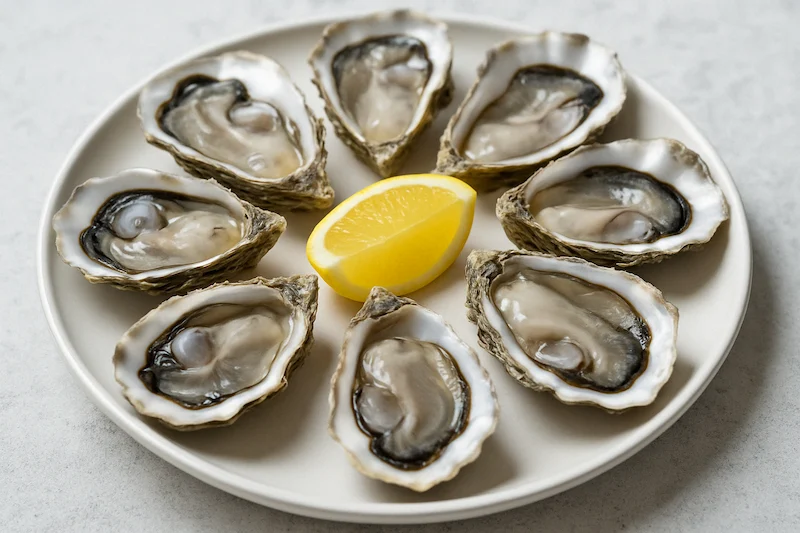
Just 6 medium oysters provide over 500% of the recommended daily intake (RDI) for zinc, making them one of the most concentrated natural sources available.
Low zinc levels have been associated with:
- Decreased testosterone
- Reduced sperm motility and count
- Weakened libido and erectile function
📚 A study published in Nutrition found that men with zinc deficiency experienced a significant drop in testosterone within just 20 weeks.
💬 Bonus: Oysters also contain dopamine precursors, which may enhance sexual pleasure and motivation.
💡 How to eat for best results: Eat them raw (if safe and fresh) or lightly steamed—overcooking destroys some zinc content. Add a squeeze of lemon for flavor and vitamin C.
✅ How much: 6–12 oysters per week (divided into 2 servings) is enough to meet your zinc needs without going overboard.
2. Eggs – The Hormone-Building Breakfast Staple

Eggs are a complete protein and a source of healthy cholesterol, which your body needs to produce testosterone. They’re also rich in vitamin D, choline, and B vitamins—all essential for hormone regulation, brain function, and energy levels.
📚 Research published in the International Journal of Endocrinology supports that vitamin D deficiency is directly linked to lower testosterone levels in men.
💡 How to eat for best results: Enjoy them boiled, poached, or scrambled with minimal oil. Don’t skip the yolk—it contains most of the testosterone-supporting nutrients.
✅ How much: 1–2 whole eggs per day is a safe and effective amount for most healthy adults.
3. Spinach – A Magnesium-Rich Testosterone Ally
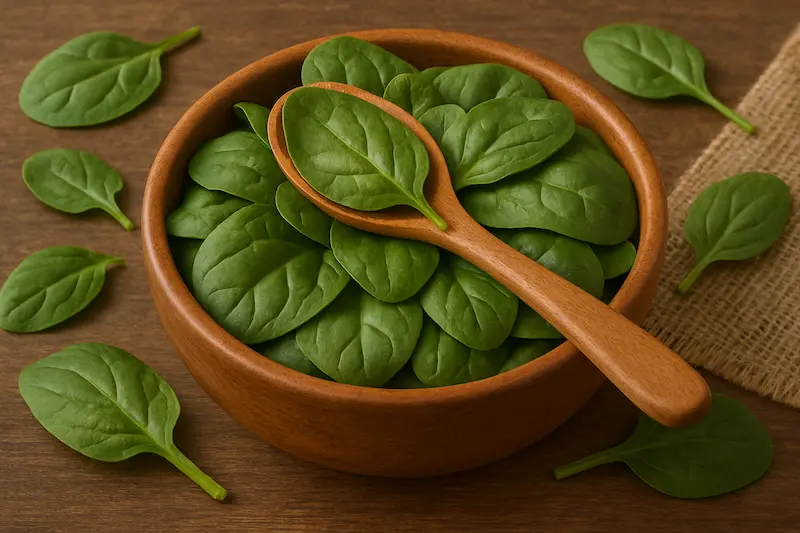
This leafy green is loaded with magnesium, which helps boost levels of free testosterone—the biologically active form. It also offers vitamin C, iron, and nitrates that support blood flow and reduce inflammation.
📚 One study in Biological Trace Element Research showed that men who consumed more magnesium had significantly higher free testosterone levels.
💡 How to eat for best results: Lightly sautéed or steamed is ideal—this improves absorption while preserving magnesium. You can also blend it into smoothies or omelets.
✅ How much: Aim for 1–2 cups of cooked spinach, 3–4 times per week.
4. Fatty Fish – Omega-3 & Vitamin D Combo

Fatty fish like salmon, mackerel, and sardines are rich in omega-3 fatty acids, which reduce inflammation, enhance cardiovascular health, and support testosterone production. They also contain vitamin D, which boosts overall hormone levels.
📚 A 2021 study found that men with vitamin D deficiency who supplemented daily for a year saw a 25% increase in testosterone.
💡 How to eat for best results: Grilled or baked fish retains nutrients best. Avoid deep frying, as high heat may degrade omega-3s.
✅ How much: 2–3 servings (4–6 oz each) of fatty fish per week is optimal for hormonal health.
5. Pomegranate – The Circulation and Hormone Enhancer
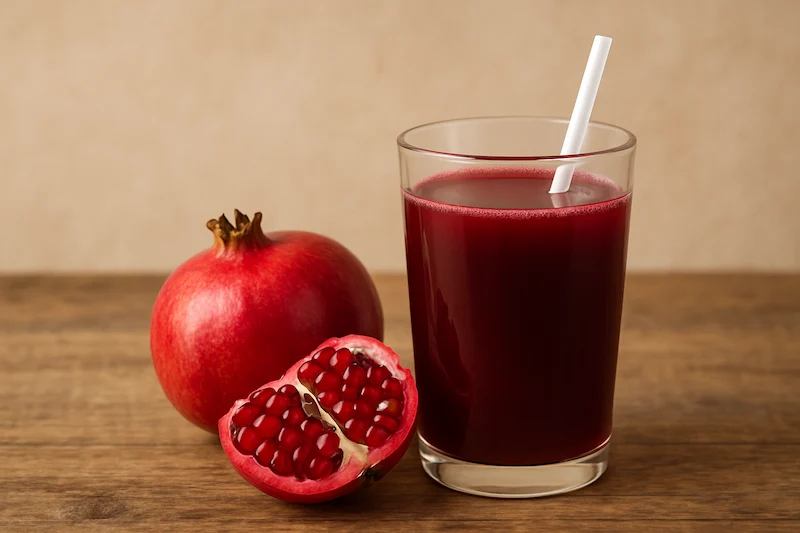
Pomegranate is packed with antioxidants that reduce oxidative stress and enhance blood circulation, two crucial factors for libido and erectile function. It may also stimulate natural testosterone production.
📚 A 2022 UK study found that daily pomegranate juice intake increased testosterone by up to 24% and improved mood and blood pressure.
💡 How to eat for best results: Drink 100% pure pomegranate juice (no added sugar), or eat the seeds directly.
✅ How much: About ½ to 1 cup of juice or 1 whole fruit, 3–4 times per week.
6. Avocados – Healthy Fats for Healthy Hormones
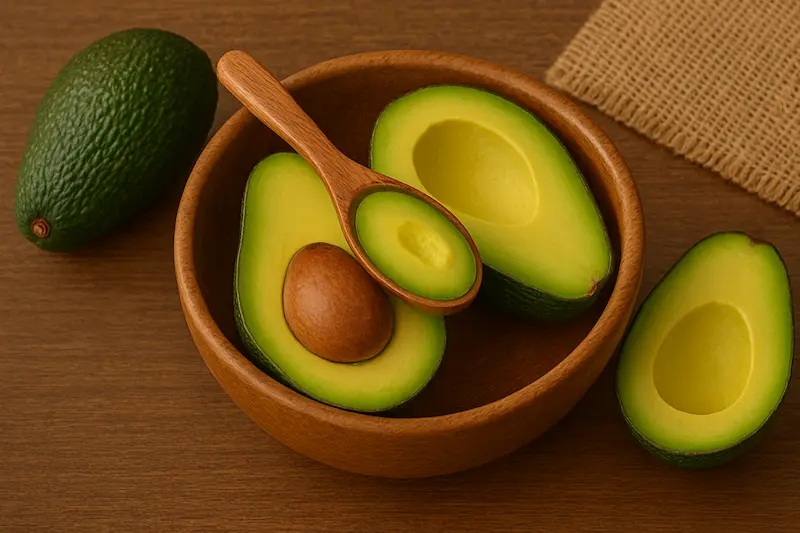
Avocados are a rich source of monounsaturated fats, vitamin E, B6, and zinc—all of which support hormone synthesis, sperm health, and stress regulation.
These nutrients also reduce inflammation and enhance blood flow, making avocados a powerhouse for both testosterone and libido.
💡 How to eat for best results: Eat fresh with eggs or in salads. Avoid overcooking or heavily processing them (e.g., deep-fried avocado).
✅ How much: Half an avocado per day (3–5 times per week) offers excellent hormonal benefits.
7. Dark Chocolate (70%+) – Pleasure and Performance in One
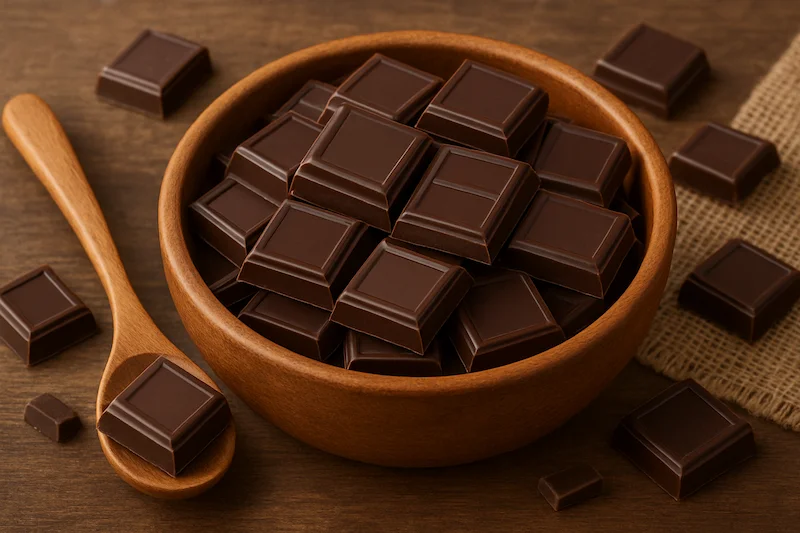
High-quality dark chocolate is rich in flavonoids, which enhance blood vessel dilation, increase dopamine, and reduce cortisol—leading to better mood, arousal, and sexual response.
📚 A study in the American Journal of Clinical Nutrition linked flavonoid-rich foods like dark chocolate with lower risk of erectile dysfunction.
💡 How to eat for best results: Choose chocolate with at least 70% cacao content. Eat it plain—avoid sugary or milk-based versions.
✅ How much: 1 small square (about 1 oz / 20–30g) per day is ideal.
Foods and Habits to Avoid
While adding testosterone-friendly foods to your diet can help boost libido and hormone balance, it’s just as important to avoid the things that sabotage your progress. Some foods and daily habits may silently lower your testosterone, increase cortisol, or harm your overall sexual health.
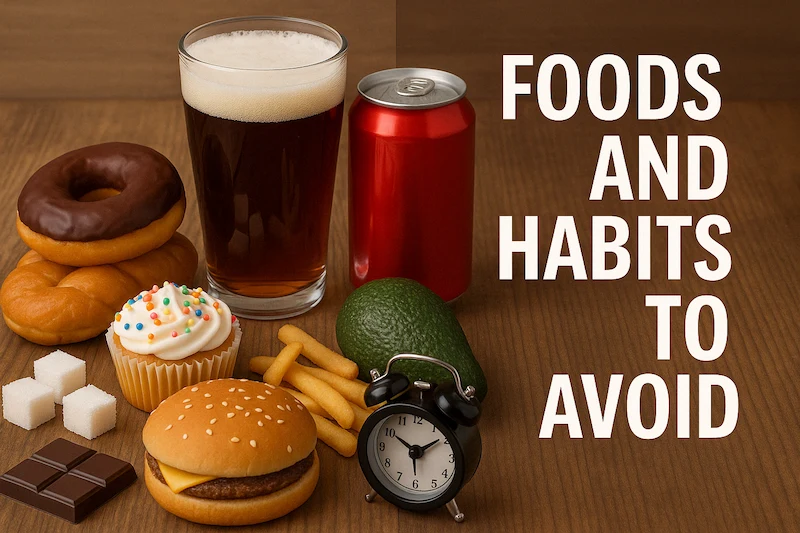
Let’s take a closer look at the most common libido killers.
❌ Excessive Sugar and Refined Carbs
High-sugar diets spike insulin and increase body fat—two things known to lower testosterone.
Over time, sugar can:
- Disrupt hormone signaling
- Increase inflammation
- Lead to insulin resistance (linked to low T)
🧁 Found in: Sodas, candies, pastries, sugary breakfast cereals
❌ Alcohol (Especially Beer)
Alcohol interferes with testosterone production in the testes and liver. Beer contains phytoestrogens (plant compounds that mimic estrogen), which may further disrupt your hormonal balance.
Chronic drinking can also:
- Reduce sperm quality
- Weaken liver function
- Impair sleep and recovery
🍺 Limit intake to 2–3 servings per week, and avoid binge drinking
❌ Highly Processed Foods & Trans Fats
Processed foods often contain trans fats and additives that negatively impact testosterone and increase inflammation.
🍔 Examples include: Frozen meals, packaged snacks, deep-fried fast food
A study in The Journal of Clinical Endocrinology found that men who consumed high levels of trans fats had significantly lower sperm counts.
❌ Soy-Based Products (In Excess)
While moderate soy intake is safe, consuming large amounts of soy protein isolates, soy milk, or tofu may affect estrogen/testosterone balance in sensitive individuals.
More research is needed, but if you already have low testosterone, it may be worth limiting soy until levels improve.
❌ Sleep Deprivation
Getting less than 6 hours of sleep per night can significantly reduce testosterone levels—sometimes by up to 15% in just one week.
Poor sleep also:
- Increases cortisol
- Decreases libido
- Slows recovery and fat metabolism
😴 Prioritize 7–9 hours of quality sleep per night for optimal hormone support.
Alternative Solutions: Supplements That Help
While food should always be your foundation, sometimes diet alone isn’t enough—especially if your testosterone levels are already low, or if stress, age, or lifestyle factors are making it harder to bounce back.
That’s where natural testosterone-boosting supplements come in. These formulas are designed to bridge nutritional gaps, regulate hormones, and support libido using concentrated, clinically-backed ingredients.
Here are a few of the top-rated options that have been thoroughly reviewed and tested:
💊 TestoPrime – Best Overall Testosterone Booster
Packed with clinically dosed ingredients like D-aspartic acid, zinc, and ginseng, TestoPrime helps boost testosterone naturally while also enhancing energy, focus, and mood.
💊 Testosil – Fast-Acting Formula for Busy Men
Formulated for men who want quick, noticeable results. Testosil contains essential T-boosting compounds and adaptogens to help with stress-related testosterone decline.
💊 Performer 8 – Male Enhancement with T-Support
If you’re looking for a supplement that supports both libido and performance, Performer 8 is an excellent choice. It enhances erection quality, stamina, and sexual confidence—while also improving testosterone levels.
👉 See full breakdown: Best Male Enhancement Pills
🧠 When Should You Consider Supplements?
- If you have signs of low testosterone despite eating well
- If you want to speed up your results from diet and training
- If libido, energy, or sexual performance feel consistently low
📝 Reminder: Always check with your healthcare provider before starting any new supplement, especially if you’re taking medication or managing a health condition.
Final Tips for a Libido-Friendly Diet
Now that you know which foods can help naturally boost testosterone and revive your sex drive, the next step is turning that knowledge into daily habits. Here are a few practical tips to help you build a diet—and lifestyle—that supports your sexual health long-term.
🍽️ Include at Least 2–3 Testosterone-Friendly Foods Per Day
Don’t overthink it—just make sure each day includes a few of the following:
- Eggs or spinach with breakfast
- Avocado in your salad or smoothie
- Dark chocolate as a healthy evening treat
- Fatty fish 2–3 times a week
- Pomegranate juice a few mornings per week
🔁 Be Consistent – Results Build Over Time
Natural testosterone-boosting doesn’t happen overnight.
It may take 2–6 weeks of consistent dietary and lifestyle changes before you start to feel noticeable improvements in mood, energy, and libido.
🚫 Pair It with the Right Habits
Even the best diet can’t make up for:
- Chronic stress
- Poor sleep
- Excessive alcohol or sugar
Make sure you’re also moving regularly, managing stress, and getting 7–9 hours of quality sleep per night.
🧠 Supplement When Necessary
If you’re already eating clean but still feel “off,” supplements may help fill the gap. Especially after age 35, natural testosterone production tends to decline.
💬 Small daily changes lead to long-term results. Start by swapping one processed snack for a hormone-friendly food today—you’ll thank yourself later.
Conclusion
You don’t need extreme diets, risky pills, or overnight gimmicks to feel like yourself again.
By simply choosing the right foods—rich in zinc, healthy fats, antioxidants, and key vitamins—you can support your body’s natural testosterone production and rekindle your sexual vitality in a safe, sustainable way.
Whether you’re in your 30s or approaching your 60s, what you eat has a powerful influence on how you feel—both in and out of the bedroom. Combine these foods with good sleep, stress management, and regular movement, and you’ll be on your way to restoring not just libido, but total confidence and well-being.
💬 Real results come from consistency. Start with one or two of these foods today, and give your body what it needs to thrive—naturally.


